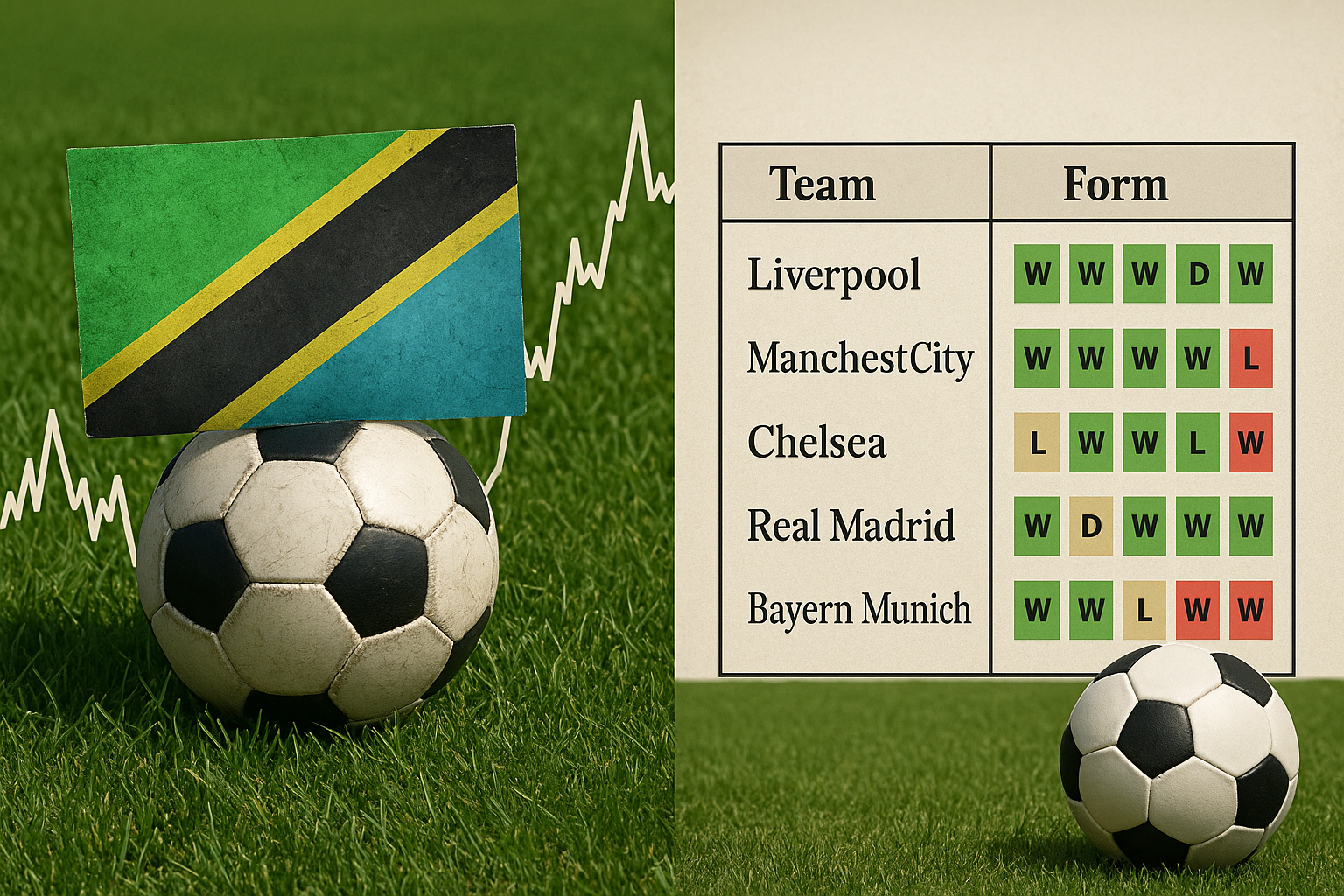Over time, losing streaks can erode your confidence and motivation, pushing you to the edge of giving up. Understanding the psychology behind these patterns is crucial in maintaining your discipline and drive. In this post, you’ll learn effective strategies to combat negativity, reinforce your mental resilience, and empower your decision-making during tough times. By recognizing the triggers and responses associated with losing streaks, you can turn setbacks into opportunities for growth and success.
Key Takeaways:
- Maintaining discipline during losing streaks requires a focus on process-oriented goals rather than outcome-oriented ones, helping to shift mindset and reduce pressure.
- Developing resilience through mental exercises, such as visualization and positive affirmations, can enhance coping strategies and reinforce commitment to disciplined behaviors.
- Regularly assessing and adjusting strategies based on performance evaluation can help identify patterns and improve decision-making, fostering a proactive approach to overcoming challenging periods.
The Mental Toll of Losing Streaks
Losing streaks can leave a deep psychological imprint, making it difficult to maintain not just performance, but also emotional stability. The cumulative effect of failure can lead to increased anxiety and diminished self-worth, where you start questioning your abilities and decisions. Each loss chips away at your confidence, creating a cycle that feels inescapable. Understanding these mental hurdles can help you forge a path back to a more disciplined mindset.
Emotional Impact: Isolation and Frustration
Experiencing a losing streak often leads to feelings of isolation and frustration. You may shy away from social interactions, fearing that others will judge you or attempt to offer unsolicited advice. Inwardly, your frustration can build, leading to a toxic loop of self-blame and negativity that distances you from supportive relationships, both personal and professional.
Cognitive Biases: Why We Dwell on Defeats
Cognitive biases tend to magnify negative experiences, causing you to fixate on defeats instead of victories. This can lead to a distorted perception where you view losses as personal failures rather than stepping stones toward improvement. Your mind focuses more on what went wrong rather than what went right, making it even harder to break the cycle of negative thinking.
This fixation is often driven by the negativity bias, a psychological phenomenon where bad events have a more significant impact on your mental state than good events of the same magnitude. For instance, you might recall every detail of a critical error in a recent game, while overlooking the times when you performed well or learned valuable lessons. This all-consuming focus can cloud your judgment, leading to increased anxiety and decreased performance, forming a vicious cycle. To counteract this, practice embracing your successes, however small, and reframe failures as opportunities for growth rather than definite endpoints.
Breaking the Cycle: Strategies for Maintaining Discipline
Setting Realistic Goals to Counteract Despair
To combat feelings of despair during a losing streak, you need to set realistic, achievable goals. Instead of aiming for perfection, break your larger objectives into smaller, manageable milestones that you can celebrate upon completion. This practical approach helps foster a sense of accomplishment and keeps motivation high, especially when larger outcomes seem out of reach. Reassessing and adjusting your goals based on your current circumstances can also help create a tailored path that promotes steady progress without overwhelming pressure.
Establishing a Routine: The Power of Consistency
Consistency breeds comfort and stability. Establishing a routine helps anchor you during turbulent times, allowing you to focus on productive actions rather than emotional setbacks. By integrating specific activities into your daily life, such as dedicated practice hours or mindfulness sessions, you can develop a framework that keeps you disciplined, even when faced with adversity. Over time, these habits reinforce a positive mindset, ultimately leading to improved performance and increased resilience during challenging periods.
Routines can also create an environment where success becomes the norm. By prioritizing certain tasks at specific times each day, you reduce the mental load of decision-making, allowing you to preserve your energy for more complex tasks. Research shows that building habits can take just a few weeks of repetition, transforming your daily activities into automatic behaviors. For instance, if you commit to practicing a skill for just 30 minutes each day, before long, that time slot becomes a non-negotiable part of your routine, shifting your mindset to one that embraces discipline even in the face of setbacks.
Reframing Failure: Transforming Losses into Learning
Transforming setbacks into growth opportunities shifts your perspective and bolsters your resilience. Each loss can serve as a lesson—understanding what went wrong and adjusting your approach enhances not only your skills but also your mental fortitude. By consciously choosing to view failures as valuable experiences, you cultivate a mindset that thrives on improvement rather than defeat.
Finding the Lessons in Setbacks
In the aftermath of a setback, seek out specific lessons instead of dwelling on disappointment. Analyzing your actions and decisions creates actionable insights, enabling you to identify trends or mistakes that you can address. This process can reveal hidden strengths and provide clarity about what changes are necessary for future endeavors.
Cultivating a Growth Mindset for Long-Term Resilience
Embracing a growth mindset means recognizing that your abilities can be developed through dedication and hard work. This perspective not only enhances your capacity to learn, but it also fosters resilience in the face of challenges. Engaging in reflection after failures empowers you to adapt your strategies and combat fear of failure, ultimately leading to greater achievement over time.
A growth mindset encourages you to view challenges as opportunities rather than insurmountable barriers. When you face difficulties, you’re more likely to search for solutions and embrace the idea that effort leads to improvement. For instance, renowned psychologist Carol Dweck’s research shows that individuals with a growth mindset are more likely to persevere through difficulties, improving performance in various realms, from academics to sports. By integrating this mindset into your daily life, you build a strong foundation for resilience, making it easier to bounce back from setbacks and approach future endeavors with confidence.
Building a Support System: The Role of Community
Surrounding yourself with a supportive community can significantly impact your resilience during tough times. A strong network not only provides encouragement but also fosters a sense of belonging, which can alleviate the psychological burden of a losing streak. Engaging with others who understand your struggles creates a space for shared experiences, advice, and motivation. Communities can take many forms, from online forums to local meet-ups, so finding the right fit for you can help cultivate discipline and perseverance.
Leveraging Social Connections to Stay Motivated
Connecting with others who share your goals can serve as a powerful motivator. Whether it’s joining a local sports team, participating in an online challenge, or collaborating on projects, these social interactions keep your drive alive. People who understand your journey can lift you up during setbacks, share strategies, and celebrate your successes, creating a cycle of positivity that encourages you to stay committed.
Seeking Accountability from Like-Minded Individuals
Establishing accountability with peers can provide the additional push needed to stay on track during challenging times. By finding individuals with similar goals, you can create mutually beneficial relationships that hold both parties responsible for maintaining discipline. This could mean setting up regular check-ins, sharing progress reports, or even participating in joint activities that reinforce commitment.
For instance, joining a study group or workout class can enhance accountability and encourage you to adhere to your plans. Research shows that individuals are more likely to achieve their goals when they commit to sharing their progress with others; this accountability fosters a greater sense of responsibility. As you face struggles, a like-minded partner can remind you of the reasons you set your goals and keep you focused on striving for success, ultimately breaking the cycle of defeat.
Practical Tools for Staying Disciplined During Hard Times
Staying disciplined during tough times requires practical tools that help you navigate challenges without losing your focus. Implementing strategies such as journaling, mindfulness, and routine adjustments can be transformative. These practices not only support your mental resilience but also create an environment where you can thrive, even in adversity. Utilizing specific techniques tailored to your needs will provide the necessary foundation to maintain discipline and keep you moving forward.
Journaling and Reflection: Documenting Your Journey
Journaling serves as a powerful tool for self-reflection, enabling you to document your experiences and emotions throughout your journey. By writing down your thoughts, you uncover patterns in your behavior and beliefs, which can help you identify triggers that undermine your discipline. Setting aside a few minutes each day to reflect on your progress can foster a greater sense of awareness and ownership in your journey.
Mindfulness Techniques to Manage Stress and Anxiety
Incorporating mindfulness techniques during periods of stress and anxiety can significantly enhance your ability to stay disciplined. Techniques such as deep breathing, meditation, or focused attention exercises help ground you in the present moment, reducing overwhelming feelings caused by external pressures. Committing to a daily mindfulness practice, even for just a few minutes, can create a buffer against negativity and help you maintain clarity on your goals.
Engaging in mindfulness techniques like progressive muscle relaxation or guided imagery promotes a calmer state of mind, allowing you to better process overwhelming emotions. Research shows that just ten minutes of practicing mindfulness can decrease anxiety levels by up to 40%. Utilize apps or online resources to integrate mindfulness into your routine easily. By focusing on your breath or envisioning a peaceful scene, you shift your attention away from stressors, re-centering your thoughts and emotions towards positive actions that reinforce your discipline.
Conclusion
To wrap up, understanding the psychology behind losing streaks can empower you to maintain discipline in challenging times. By recognizing patterns in your behavior and emotions, you can develop strategies to remain focused and resilient. Cultivating a positive mindset, setting realistic goals, and practicing self-compassion allows you to navigate setbacks with grace. Trusting the process and staying committed to your objectives enables you to emerge stronger, ultimately transforming each setback into a stepping stone for future success.
FAQ
Q: What psychological factors contribute to a losing streak in performance-based activities?
A: Losing streaks can trigger various psychological responses such as frustration, anxiety, and decreased motivation. These factors often stem from cognitive biases, like overgeneralization, where one might believe that a series of losses indicates an overall lack of ability. Additionally, the fear of failure can lead to avoidance behaviors, further compounding the issue and making it difficult to approach challenges with a positive mindset.
Q: How can individuals maintain discipline during challenging times, such as a losing streak?
A: Maintaining discipline during tough periods involves establishing a structured routine and setting realistic goals. Focusing on process-oriented strategies, such as practicing specific skills or improving techniques, rather than solely on outcomes can help shift the focus away from immediate results. It can also be beneficial to engage in reflective practices, such as journaling, which allows individuals to analyze their actions and thoughts, promoting a mindset of growth and resilience despite setbacks.
Q: What role does self-talk play in managing a losing streak, and how can it be improved?
A: Self-talk significantly influences how individuals perceive their performance during a losing streak. Negative self-talk can exacerbate feelings of inadequacy and despair, while positive affirmations can bolster confidence and motivation. To improve self-talk, individuals can practice mindfulness and cognitive restructuring techniques to challenge negative thoughts and replace them with constructive, encouraging messages. Engaging in visualization techniques may also help reinforce a positive mindset and prepare mentally for future challenges.




